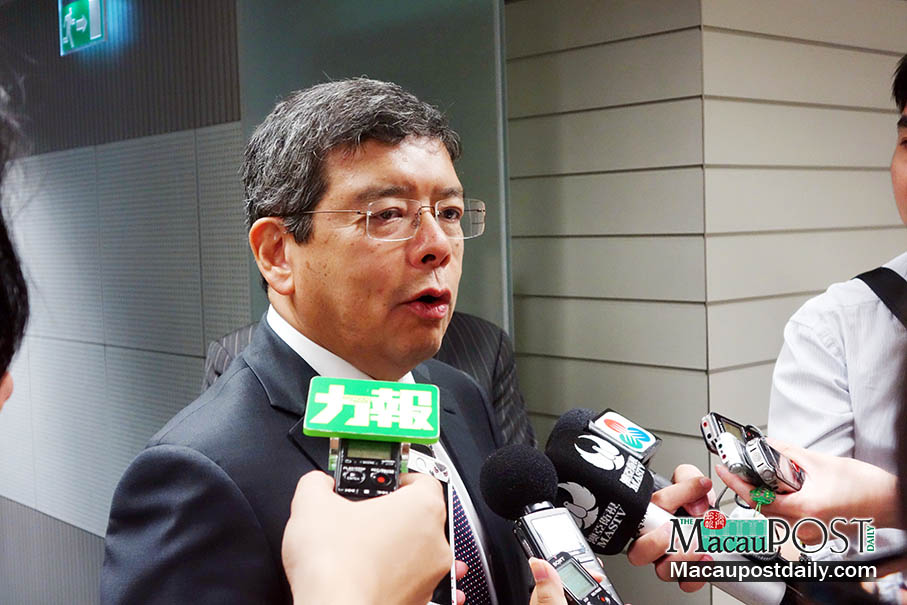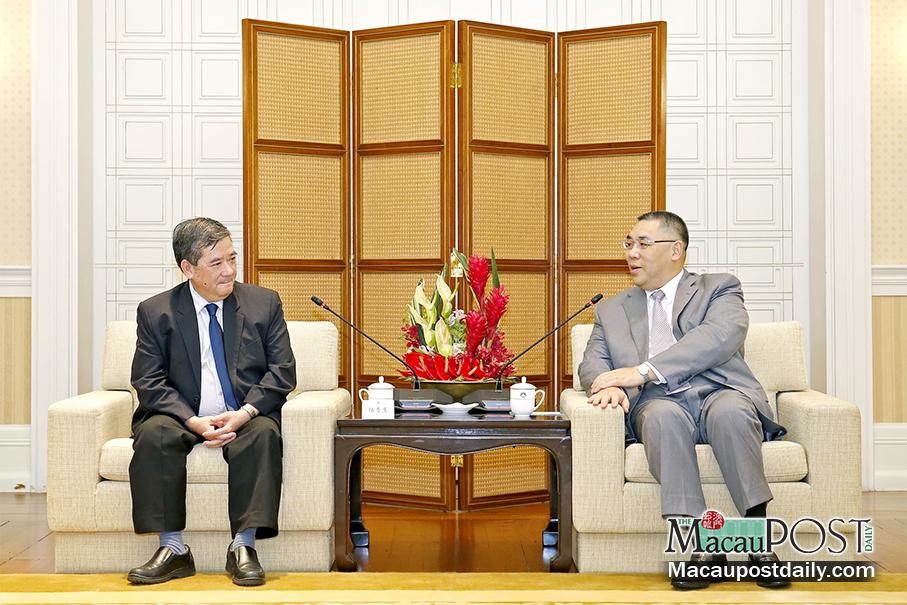President Xi Jinping announced during the 3rd Belt and Road Forum for International Cooperation (BRF) in Beijing last week eight major steps that China will take to support high-quality Belt and Road (B&R) cooperation.
I am optimistic that the new phase of the Belt and Road Initiative (BRI) will boost Macau’s role on the international stage as a business-service platform between China and Portuguese-speaking countries (PSCs), i.e., the world’s nine nations that have Portuguese as their official language (Brazil, Angola, Mozambique, Portugal, Guinea-Bissau, Cabo Verde, São Tomé and Príncipe) or one of their official languages (Equatorial Guinea and Timor-Leste).
In his keynote speech at the opening ceremony, Xi listed the eight steps that China will take to support the joint pursuit of high-quality B&R cooperation.*
The president’s eight succinct steps for the next BRI stage are:
First, building a multidimensional B&R connectivity network; second, supporting an open world economy; third, carrying out practical cooperation; fourth, promoting green development; fifth, advancing scientific and technological innovation; sixth, supporting people-to-people exchanges; seventh, promoting integrity-based B&R cooperation; eighth, strengthening institutional building for international B&R cooperation.
The BRF was attended by 151 countries**, i.e., 78 percent of the 193 member states of the United Nations, 41 international organisations and some 10,000 representatives from all over the world. I am sure that no other country in the world has ever been able to host, on its own initiative, that many nations and international organisations at a single event.
As of August this year, 155 countries had reportedly signed up to the BRI.
I wonder if any analyst forecast the initiative’s rapid expansion when Xi announced the strategy, then still called the “Silk Road Economic Belt”, during an official visit to Kazakhstan in September 2013. Initially, the programme was known in English as “One Belt, One Road” – a direct translation from its Chinese name (一带一路; “yidai, yilu”). The English translation didn’t sound particularly appealing so it was soon given its present name.
In his speech at Kazakhstan’s Nazarbayev University on September 7, 2013, Xi pointed out “that more than 2,100 years ago, during China’s Western Han Dynasty (206 BC-AD 24), imperial envoy Zhang Qian was sent to Central Asia twice to open the door to friendly contacts between China and Central Asian countries as well as the transcontinental Silk Road linking East and West, Asia and Europe. Kazakhstan, as a major stop along the ancient Silk Road, has made important contributions to the exchanges and cooperation between different nationalities and cultures. People in regional countries created the history of friendship along the ancient Silk Road through the ages.”***
Informally, the BRI marked the 10th anniversary of its founding about a month before last week’s BRF in Beijing – and there were two other anniversaries of particular relevance to the People’s Republic of China (PRC) and the Macau Special Administrative Region (MSAR) this month: The Mainland-Macau Closer Economic Partnership Agreement (CEPA), which gradually liberalised trade between the two sides, was signed on October 18, 2003, while the first ministerial-level Forum for Economic and Trade Cooperation between China and Portuguese-speaking Countries (aka Forum Macao nowadays) was held in Macau on October 12-14, 2003. Covering the meeting at Macau Tower, I was particularly impressed by the “can-do attitude” of the State Council’s then vice-premier Wu Yi.
The setting-up of Forum Macao, which is slated to hold its sixth ministerial-level meeting next year, has immensely elevated Macau’s position on the international stage and provided a tremendous boost to its role as a business-service platform between China and Portugues-speaking countries. Thanks to Forum Macao, our small city has become a relatively important tool of Beijing’s foreign and economic policies.
Chief Executive Ho Iat Seng pledged in his speech at Wednesday’s BRF in Beijing that Macau will “give full play to its role as an important B&R node,” based, among other things, on its development drive in the Hengqin-Guangdong In-depth Cooperation Zone and the Guangdong-Hong Kong-Macau Greater Bay Area (GBA).
Ho also said that the country’s high-level opening-up to the outside world has promoted the high-quality development of the BRI as well as Macau’s.
Addressing the 20th anniversary of Forum Macao on Friday, Ho described the 10-nation organisation set up two decades ago at the central authorities’ initiative, as “an invisible bridge across the oceans that closely connects Portugues-speaking countries and that has gradually become a ‘promoter’ for comprehensive cooperation between China and Portuguese-speaking countries.”
Ho also underlined that Forum Macao’s business-service platform role has become “an important link for Macau to better integrate itself into the overall development of the country.”
I do share our chief executive’s view that Macau’s platform role has turned from just a concept two decades ago into reality and, at the same time, “has significantly enhanced Macau’s international standing, assisted the appropriately diversified development of Macau’s economy and provided Macau enterprises with a broader space for cooperation.”
In my view, Forum Macao’s future activities should be closely aligned with Xi’s eight steps for the next phase of the BRI. In other words, Forum Macao should become an integral part of the BRI, the world’s most successful initiative of its kind.
Macau-based Foreign Ministry Commissioner Liu Xianfa pointed out in a special article****, headlined “Belt and Road Cooperation: Setting sail again after 10-year Success and Glory”, published in our newspaper on Thursday, that B&R cooperation is not only “a magnificent symphony of history and reality” but also “benefits both China and the world”.
“Ten years is just the prologue,” Commissioner Liu wrote, adding, “Facing changes that are consequential to the world, to our times, and to history, the BRI, setting sail again from a new historical point, will definitely open a new window of opportunity for China and the world with higher-quality and higher-level development, and make people’s wish for a happy life come true at a faster pace.”
Regrettably, the BRI continues to be maligned by many (if not most) politicians and commentators in the West. I presume that this is based on the all-too-typical cocktail of ignorance and arrogance, as well as the misguided fear and even envy (I suspect that jealousy still does play a particularly nasty role in international relations) of a rising China.
Unlike in the Global North (with a few exceptions such as Portugal and Serbia), the China-initiated BRI has been almost unanimously welcomed by the Global South, in Africa in particular.
I read last week a thought-provoking article***** headlined “Belt and Road Initiative and China’s ‘relational power’” by British sociologist Martin Albrow, who is noted for his work on globalisation.
Political scientists define “relational power” as “a country’s power by how it is able to put its material power into action by developing connections with other countries.”******
Albrow underlined that the BRI extending to nearly 75 percent of the countries of the world and half of the world’s population inhabiting the 11 countries of the newly extended BRICS bloc of nations shows the growing influence of China in world affairs.
“But this is not hard power, and I would not even call it soft power. It is something else. Let us call it relational power, the ease with which you can communicate with another, initiate contact, find what is in your mutual interests, exchange goods and services, and discover what you have in common.”
Albrow, author of the 2018 book “China’s Role in a Shared Human Future”, underlined in his article that “relational power…means the capacity to work with others. It is cooperation for greater ends than any can achieve individually.”
One can only hope that “relational power” will play an increasingly important role in international relations. The international community would surely benefit from it.
According to Albrow, “China has an approach to world affairs that is deeply embedded in its own history. Not for nothing has Chinese thought over the centuries designated the unity of our world with the concept ‘tianxia’, [or] ‘all under heaven’.”
The millennia-old concept is of dramatically renewed significance during this global age for all of us – here in Macau and elsewhere in our troubled world.
What humankind urgently needs is to commit itself to establishing a community with a shared future. The BRI can certainly play a constructive role in this.
– Harald Brüning
* https://www.macaupostdaily.com/article19528.html
** http://se.china-embassy.gov.cn/eng/zgxw_0/202310/t20231020_11164742.htm
*** http://toronto.china-consulate.gov.cn/eng/zgxw/201309/t20130913_7095490.htm
**** https://www.macaupostdaily.com/article19541.html
***** https://english.news.cn/20231018/edfc0f531d94475c9ed773ee64cac214/c.html#:~:text=The%20BRI%20has%20been%20primarily,pilot%20project%20of%20the%20BRI.
****** https://english.news.cn/20231018/edfc0f531d94475c9ed773ee64cac214/c.html#:~:text=The%20BRI%20has%20been%20primarily,pilot%20project%20of%20the%20BRI.









